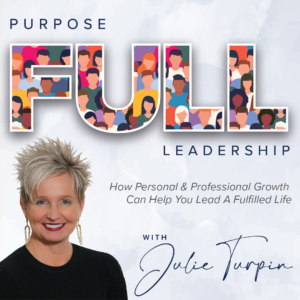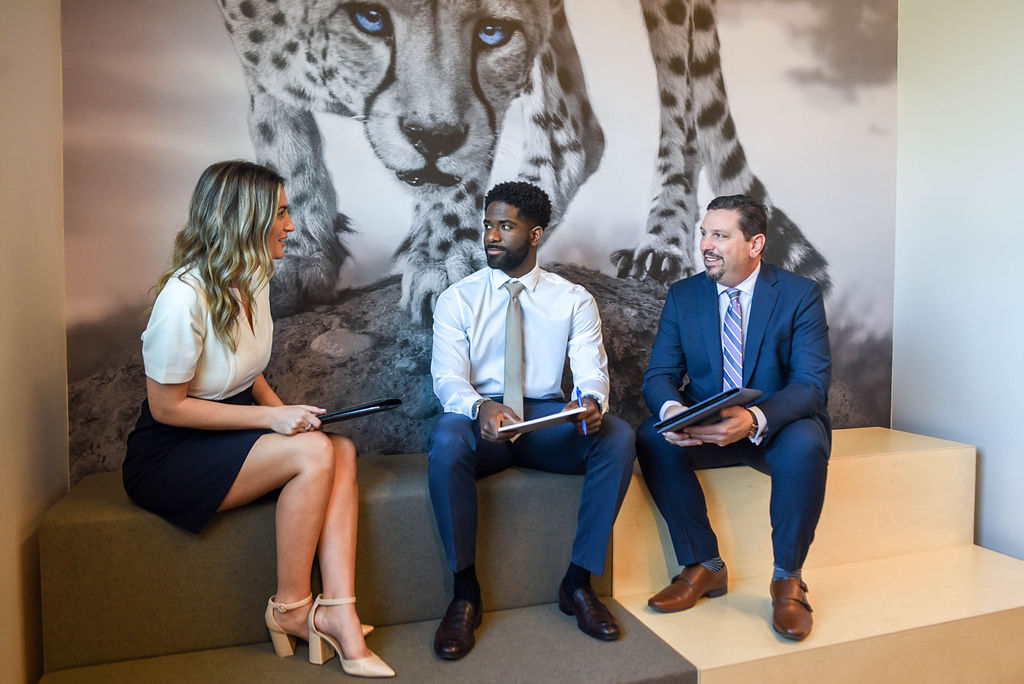My Foundational 5: How Showing Up for Yourself Helps You Show Up for Others
by Julie Turpin, Chief People Officer at Brown & Brown Insurance
We wear so many hats these days.
Business leader. Significant other. Parent. Child. Caregiver. Friend. Co-worker. Community member. Mentor.
While showing up fully in these roles is critical to our day-to-day, it’s equally as important — but sometimes increasingly challenging — to dedicate the time and energy to ourselves. Time to develop and practice necessary self-care and self-help skills and amass a backpack of wisdom to aid your professional and personal growth.
It’s far too easy to forget that in order to show up for others, we first need to show up for ourselves.
At Brown & Brown’s pilot Women in Sales Summit in June, I shared with a group of incredible female producers five foundational ways I show up for myself regularly and how they strengthen my ability to lead others. I call these my Foundational Five.
1. Build a loving relationship with yourself. We are our harshest critics, easily influenced by the world around us, telling us like thought bubbles in a comic strip everything we are doing wrong as we walk through our lives.
Think about what you say to yourself daily. Do you focus on self-doubt and seek external approvals? Do you get angry at yourself when you fail?
What would happen if, instead, you spoke to yourself with the same kindness and grace you use with your four-year-old or an aging parent?
When we genuinely love and accept ourselves, we can show up to any situation just the way we are, knowing that we have the inner strength and trust in ourselves to handle what comes next. How you treat yourself directly translates to how you let others treat you and how you treat them in return.
TIP: There is no singular path to loving oneself, but here are a few exercises that have worked for me over the years. In her book Mirror Work: 21 Days to Heal Your Life, Louise Hay directs you to stand in front of the mirror and say directly to yourself, “I like you,” and then, “I love you,” and to repeat this process day after day until you truly believe it. The exercise helps you overcome any objections you have about yourself and gets to the core of genuine self-esteem. I have also found that a gratitude journal is an excellent way of pointing out the positives in your life and about yourself.
2. Consider your adversaries as noble friends. There is a saying, “People come into your life for a reason, a season or a lifetime.” It can be difficult to accept this, but even the people who challenge and push us are in our lives for a reason. There are lessons and growth in each of these experiences, and the scars from these relationships make us who we are in the present.
When approached by someone who will challenge us, instead of going to the place of ego where we ask, “What is this person’s problem?” we can ask, “What am I supposed to learn from this individual or experience?” By simply changing our approach to the situation, we can turn this adversarial person into a noble friend helping us on our journey.
TIP: A “noble friend” challenged me in my late 20s. I was responsible for standing firm with this individual and rerouting their expectations. I accepted there was something for me to learn from this situation, and instead of pushing back, I worked to educate them and manage their expectations to be aligned with the desired outcome. This noble friend taught me to be creative and how to overcome objections constructively. Once I accepted the lesson, this friend faded away and no longer served as a roadblock to me. You can do the same with the noble friends in your life when you see them as such.
3. Let compassion be your guiding light. We don’t know people or their stories. We only see how they show up — and we make judgments based on their actions. Leading with compassion is an effective way to turn an adversary into a friend. You do not have to walk a mile in someone else’s shoes to recognize that they have their own story and find value in their perspective. When you let compassion be your guiding light, your life’s mission will be to light up the world.
TIP: Sometimes leading with compassion is sharing a smile; other times, it’s lending a listening ear. When you struggle to connect with another person, ask them questions about themselves. To know someone and understand their experiences is really powerful, and we may be surprised about how we feel towards others when we let compassion be our guiding light.
4. Get your uniform dirty. I learned this from Ed Mylett. In other words, put yourself in the game. Play. When an opportunity makes you uncomfortable and pushes you outside of your comfort zone, that is when to say yes! It’s often an indicator of potential growth. Don’t waste your potential by sitting on the sidelines.
TIP: There will always be excuses (both legitimate and those we create for ourselves), but there is a difference between what you can do and what you will do. When we stretch ourselves to what we can do, we discover a new, larger version of ourselves. You will not want to go back to that smaller version once you do.
5. Invest, invest and invest in yourself. Before you can expect someone else to invest their time and energy in you, declare yourself worthy by investing in yourself.
An investment in yourself does not have to be big or flashy. Whether attending a self-development retreat or carving out 20 minutes each day to walk or journal, investments come in all shapes and sizes. The best way to start is to start, no matter how small. You will see your investments grow over time, and you will find yourself motivated to invest more and more.
TIP: I have an education/self-development fund. These funds ensure I’m on track to invest in myself in multiple ways. Investing in yourself gives you a chance to renew yourself over and over.
The Takeaway: Our relationship with ourselves is often the catalyst for our relationships with others. Remember:
- Self-doubt gets in the way of your ability to meaningfully contribute. You can find power and strength in self-love.
- Every experience and encounter offer you something of value.
- Sharing your story and listening to others’ stories will help build relationships based on compassion versus competition.
- You cannot expect others to invest in you if you are not willing to first invest in yourself. Put yourself in the game.

PurposeFULL Leadership
How Personal & Professional Growth Can Help You Lead A Fullfilled Life
by Julie Turpin, Chief People Officer at Brown & Brown Insurance
Subscribe to Julie’s PurposeFULL Leadership monthly newsletter and view this blog on LinkedIn here.








